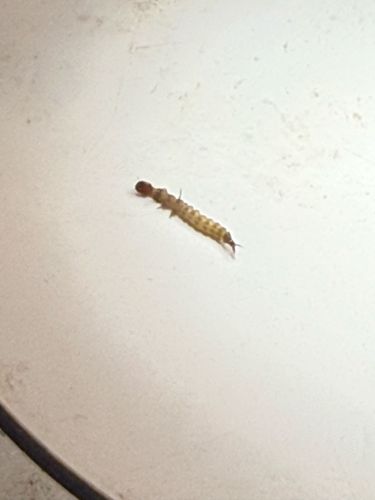Antlion larva (or 'Doodlebug')
Scientific Name: Myrmeleontidae (larva)
Order & Family: Neuroptera, Myrmeleontidae
Size: Larvae typically range from 2-15 mm (0.08-0.6 inches) in length.

Natural Habitat
Sandy or dusty areas, often under overhangs or in sheltered spots where they can build their pits, or freely roaming.
Diet & Feeding
Mainly ants and other small insects that fall into their sand pits (for pit-building species), or wandering insects for free-living species. They ambush their prey using large, powerful mandibles.
Behavior Patterns
Many species are famous for building conical pit traps in loose sand to catch unsuspecting prey. They bury themselves at the bottom of the pit, with only their mandibles protruding, waiting for prey to slide down. Other species are free-living and hunt on the surface or in detritus. The larva undergoes complete metamorphosis into a winged adult form, which resembles a dragonfly.
Risks & Benefits
Benefits: They are beneficial as natural pest control, especially in reducing ant populations. Risks: None to humans; they are not venomous and do not bite people. They play a role in the food web.
Identified on: 10/22/2025